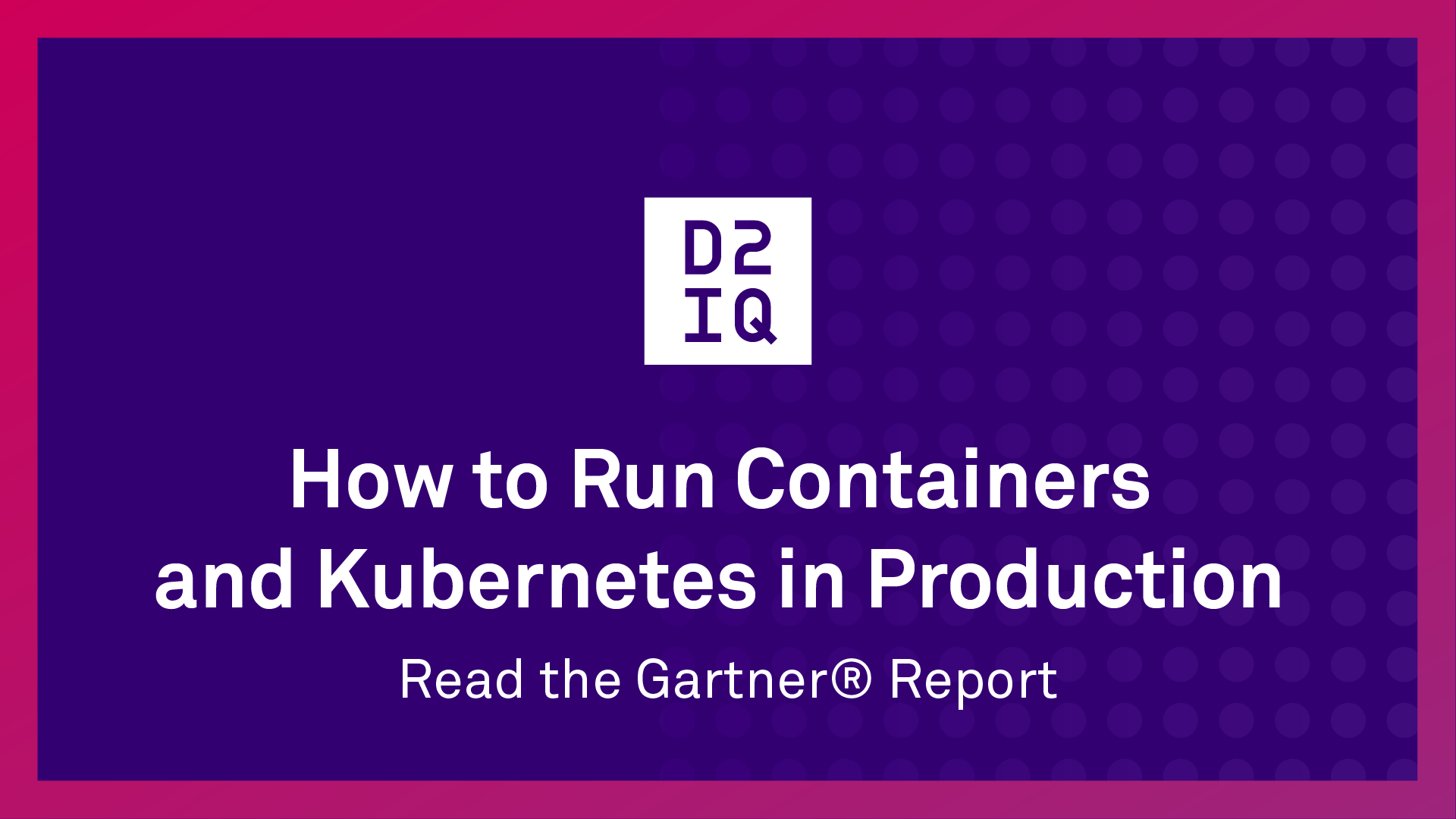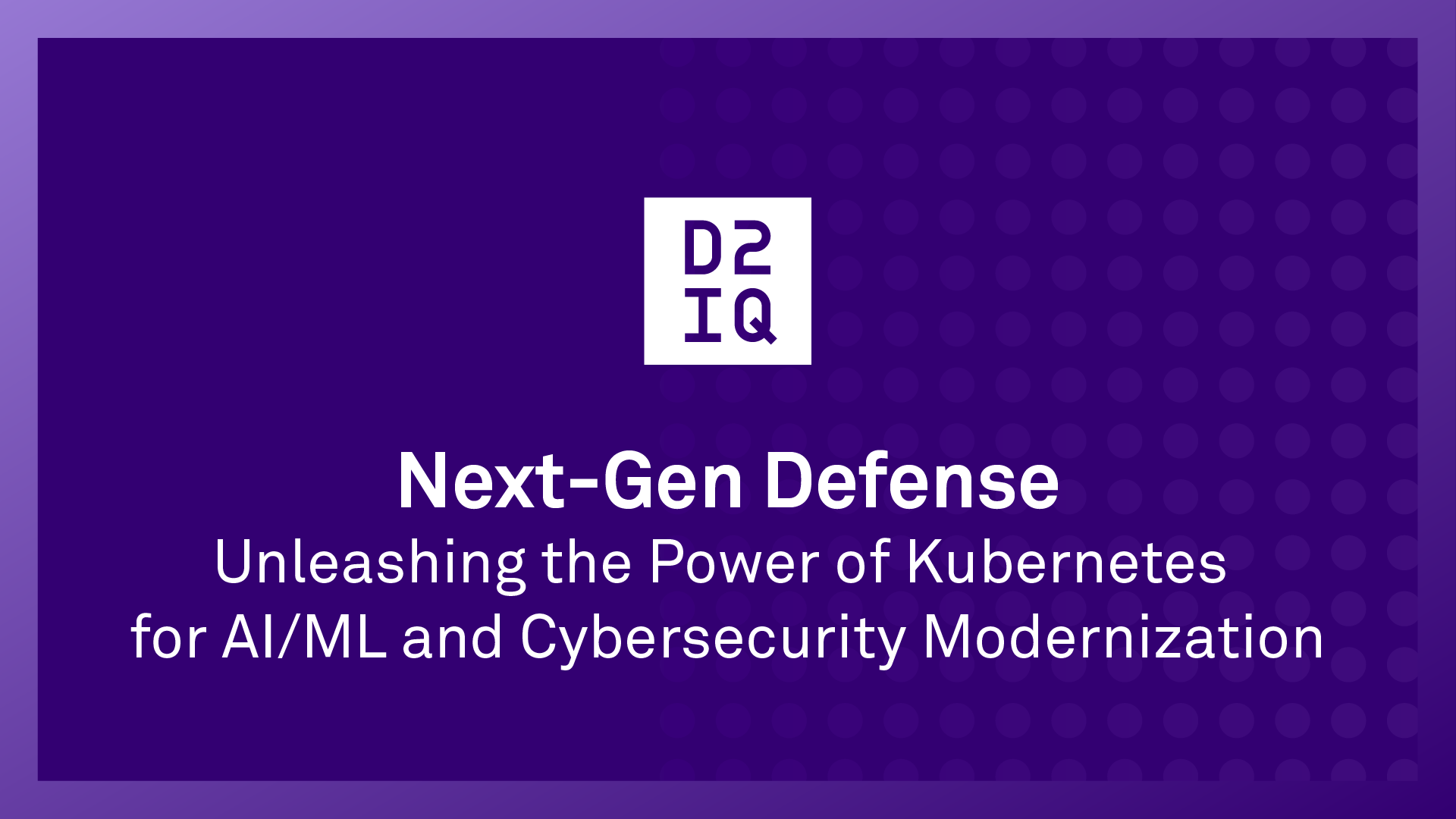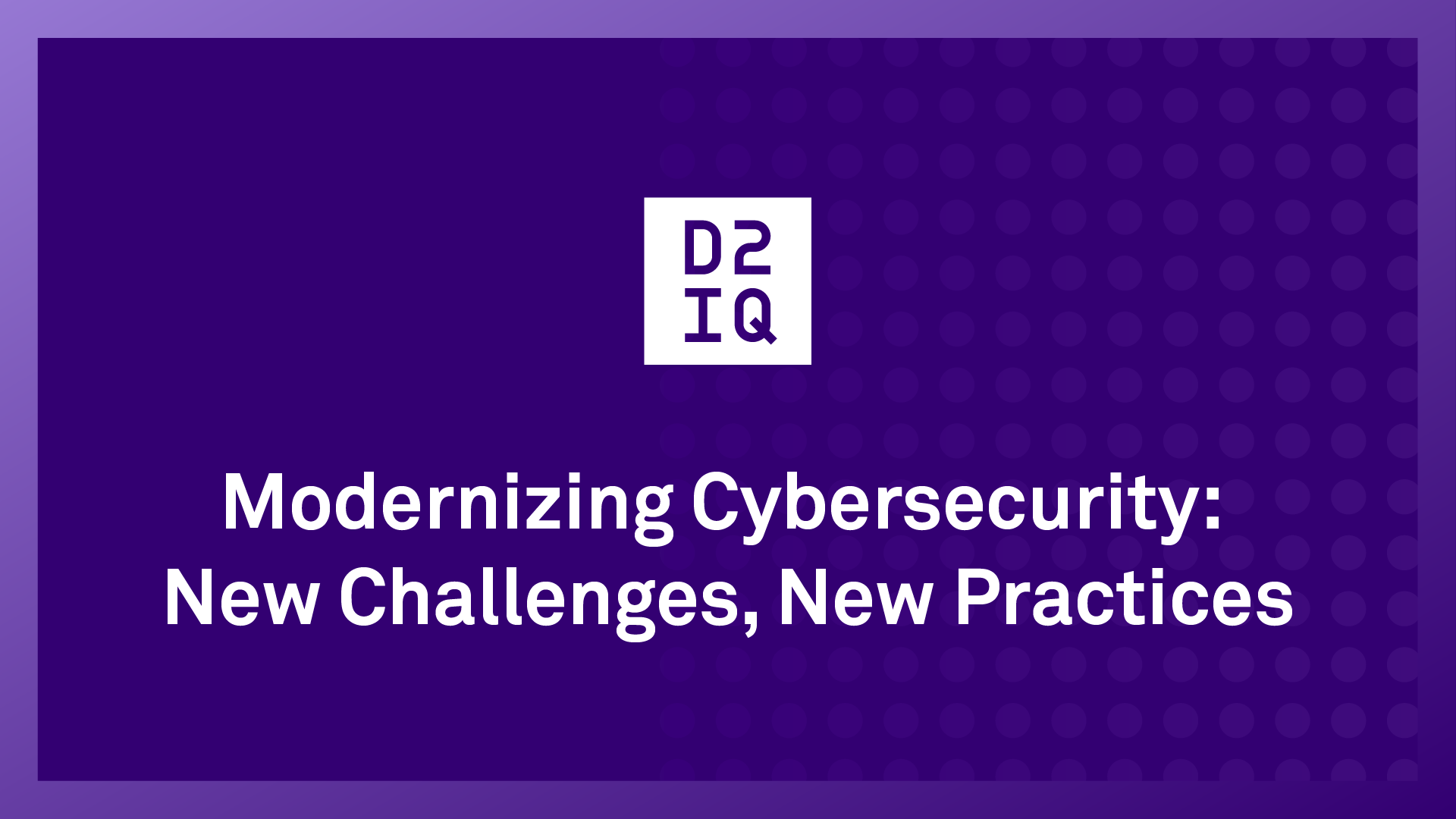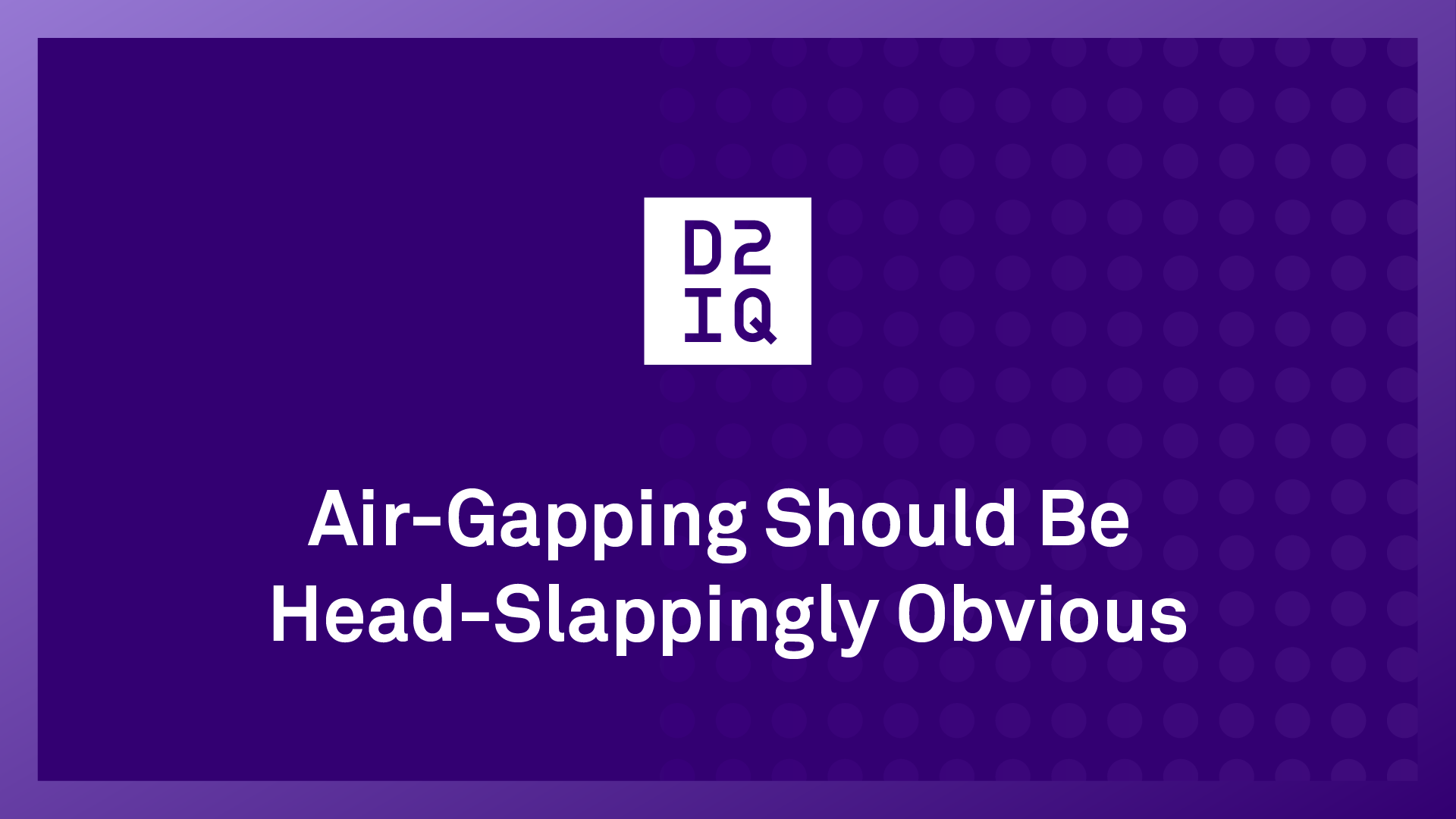Run Containers and Kubernetes in Production – The Gartner® report

6 min read
Download the Gartner report
The Gartner report on How to Run Containers and Kubernetes in Production describes the barriers that are preventing organizations from successfully deploying and managing Kubernetes environments.
As the report asserts, “Although the adoption of containers and Kubernetes is growing, the skills and operational know-how for it are lagging.”
A big part of the problem, says the Gartner report, is that “cloud-native applications require a high degree of infrastructure automation and specialized operations skills, which are not commonly found in enterprise IT organizations.”
In its container deployment models, Gartner recognized the D2iQ Kubernetes Platform (DKP) as an example of Operations Focused Container Management Software. DKP enables organizations to overcome Kubernetes deployment and management difficulties through integrated platform automation and a centralized management plane, along with skilled training.
How DKP Fits the Bill
We feel the recommendations that Gartner provides to infrastructure and operations (I&O) managers align perfectly with the key features and capabilities of DKP. For example, Gartner advises I&O managers to “prioritize vendors that can provide hybrid orchestration for container workloads across multiple environments, with tight integration to back ends, centralized multicloud management planes and flexible pricing models.”
We’re confident that DKP meets these criteria by enabling organizations to run Kubernetes across cloud, hybrid cloud, on-premise, edge, and air-gapped environments, and to centrally manage Kubernetes clusters across all environments through a single management panel, enabling DKP customers to experience optimal return on investment (ROI) and lowest total cost of ownership (TCO).
Simplification Through Automation
Gartner advises I&O organizations to “deploy infrastructure automation tools to ensure that infrastructure provisioning and management is automated and streamlined to account for the dynamic nature of containerized workloads.”
Gartner also advises organizations to assemble a “platform ops” team whose responsibilities include automating infrastructure installation and management of the Kubernetes software distribution, as well resource management and cost optimization.
DKP simplifies Kubernetes deployment and management through automation that enables platform ops teams to easily deploy DKP in minutes and manage Kubernetes clusters through its central management panel. DKP is architected around Cluster API (CAPI) to enable declarative programming from top to bottom and incorporates FluxCD to simplify Kubernetes management through GitOps workflow.
The aim of the platform ops team, says Gartner, should be to foster operational best practices and create standardized platforms that are automated, scalable, and resilient.
We believe DKP provides what is essentially instant platform engineering that gives DevOps teams a “golden path” to Kubernetes development and management. Scalability, stability, and resilience are among DKP’s strengths, with customers typically experiencing zero downtime.
Gartner also advises developers to focus on instrumenting their applications to enable observability. DKP meets this requirement through integrated platform services for auditing and monitoring, including resource utilization and cost control.
Focus on Security
Surveys show that security is among the top concerns of organizations deploying Kubernetes solutions. Gartner says, “security can’t be an afterthought and needs to be embedded in the DevOps process.”
Read more on how D2iQ’s chief technology officer Deepak Goel offers the same advice in “Implementing Zero Trust on Kubernetes.”
Gartner also advises organizations to harden Kubernetes security by using Center for Internet Security (CIS) benchmarks. We further feel that DKP meets these requirements by providing military-grade security that meets all NSA/CISA Kubernetes security hardening guidelines.
To reduce the security burden on platform DevOps teams, DKP is secure by default, and the platform gives organizations the unique ability to deploy an air-gapped environment in minutes.
The Importance of Openness
Gartner notes that, “Agility and portability are the developers’ top concerns, and they expect their applications to be portable across the software development life cycle.”
DKP is unique in being based on pure upstream open-source Kubernetes. Openness prevents vendor lock-in while giving organizations portability and the ability to easily extend the platform to enjoy the innovation that arises within the open-source community.
Upscaling Cloud Service Provider Kubernetes
In its Container Deployment Model comparison, Gartner cites Public Cloud Container Services as a category offering operational simplicity and faster time to market.
Although cloud provider services give organizations an easy on-ramp to Kubernetes, they are rudimentary services that require additional services to become production-ready environments. Customer choices for supplementing cloud service providers Kubernetes include do-it-yourself (DIY) or managed service approaches that require complex piecemeal integrations.
D2iQ eliminates the piecemeal complexity by providing a complete, fully integrated turnkey solution that elevates cloud service provider Kubernetes to production-ready platforms that can support mission-critical applications. DKP provides the added advantages of centralized multi-cluster and multi-cloud management, as well as the ability to deploy and manage clusters across all major cloud provider services.
For further examples of how and why we feel D2iQ maps to Gartner container management recommendations, see “Container Management Report 2022: Timely Advice for a Surging Enterprise Kubernetes Market.”
Download the full Gartner report on How to Run Containers and Kubernetes in Production here.
Gartner, How to Run Containers and Kubernetes in Production, 1 September 2022, Arun Chandrasekaran
GARTNER is a registered trademark and service mark of Gartner, Inc. and/or its affiliates in the U.S. and internationally and is used herein with permission. All rights reserved.









